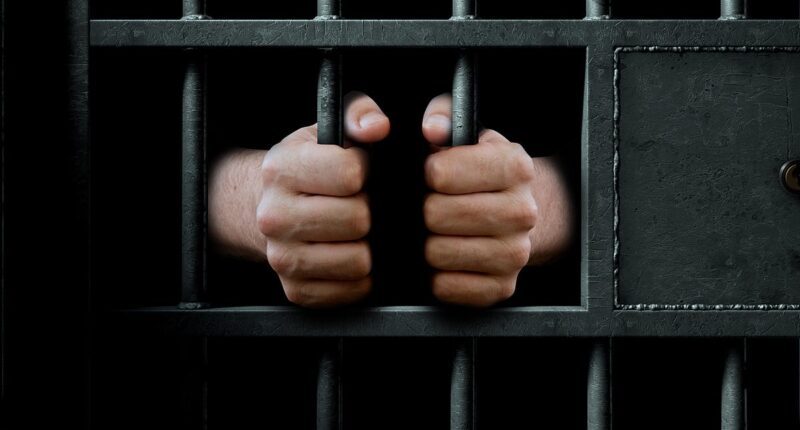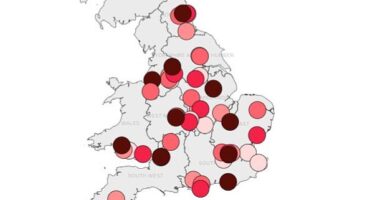A recent report discovered that in the UK, 49 rapists were allowed to be identified as female offenders, prompting concerns from the United Nations about allowing criminals to select their own gender.
Reem Alsalem, the UN’s special rapporteur for violence against women and girls, highlighted that approximately one-third of law enforcement agencies in the UK are still recording data based on criminals’ and victims’ self-identified gender rather than their biological sex at birth.
In a critique of British institutions, Ms. Alsalem expressed that this method ‘disregards the specific needs of women and girls’ and heightens safety risks. These statements were part of her interim report released last Friday.
Over the last 10 years, 49 convictions for rape have been listed as female, despite the fact the offenders were born male.
Ms Alsalem added that the ‘lack of legislative clarity on sex hampers data collection on violence against women and girls.
‘Police data, while disaggregated by crime and location, often conflates the sex with the gender, for data on victims and perpetrators’.
Her remarks come a month after the Supreme Court ruled that the definition of a woman relates to ‘biological sex’.
Lord Hodge said that five Supreme Court justices had unanimously decided that ‘the terms woman and sex in the Equality Act refer to a ‘biological woman and biological sex’.

The United Nations has warned over letting criminals choose their own gender , after a new report found that 49 rapists were allowed to identify as female offenders

It comes a month after the Supreme Court ruled that the definition of a woman relates to ‘biological sex’. Pictured: For Women Scotland directors Susan Smith (left) and Marion Calder (right) celebrate the landmark ruling

Pictured: Campaign group For Women Scotland celebrating the judgement
He recognised ‘the strength of feeling on both sides’ and cautioned against seeing the judgement as a triumph for one side over another, stressing that the law still gives trans people protection against discrimination.
In an 88-page ruling, the justices said: ‘The definition of sex in the Equality Act 2010 makes clear that the concept of sex is binary, a person is either a woman or a man.’
The decision could have far-reaching implications on how sex-based rights apply, including how women-only spaces are allowed to operate.
The judgement marks the culmination of a long-running legal battle between the Scottish government and a women’s group over the definition of a ‘woman’ in Scottish legislation mandating 50 per cent female representation on public boards.
The case centred on whether somebody with a gender recognition certificate (GRC) recognising their gender as female should be treated as a woman under the 2010 Equality Act.
In handing down the court’s judgement, Lord Hodge said: ‘The unanimous decision of this court is that the terms ‘woman’ and ‘sex’ in the Equality Act 2010 refer to biological woman and biological sex.’
‘In a judgement written by Lady Rose, Lady Simler and myself, with whom Lord Reed and Lord Lloyd-Jones agree, we unanimously allow the appeal,’ he added.
Lord Hodge said: ‘But we counsel against reading this judgement as a triumph for one or more groups in our society at the expense of another. It is not…
‘The Equality Act gives transgender people protection not only against discrimination through the protected characteristics of gender reassignment, but also against direct discrimination, indirect discrimination, and harassment, in substance in their acquired gender.’

Lord Hodge said that five Supreme Court justices had unanimously decided that ‘the terms woman and sex in the Equality Act refer to a ‘biological woman and biological sex’

Marion Calder (centre), Helen Joyce (centre left) and Maya Forstater (left) celebrate outside the Supreme Court

Campaigners Helen Joyce (left) and Maya Forstater of Sex Matters smile outside court after the landmark ruling
He recognised the ‘strength of feeling on all sides’ which lies behind the case, adding: ‘On the one hand women, who make up one half of the population, have campaigned for over 150 years to have equality with men and to combat discrimination based on their sex. That work still continues.
‘On the other hand, a vulnerable and often harassed minority, the trans community, struggle against discrimination and prejudice as they seek to live their lives with dignity.’
The judgement was celebrated by women’s rights groups, who cheered outside the court, opened a bottle of champagne and broke into song after the ruling was handed down.
But a furious protester shouted ‘trans rights are human rights’ at those gathered, adding: ‘Even if you kill every last one of us another will be born tomorrow.’

















